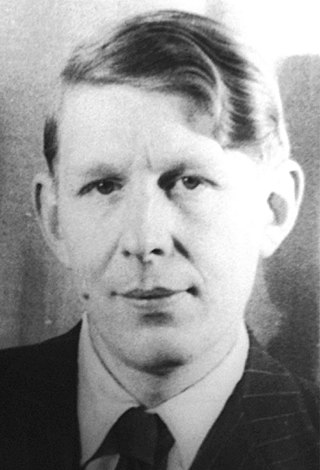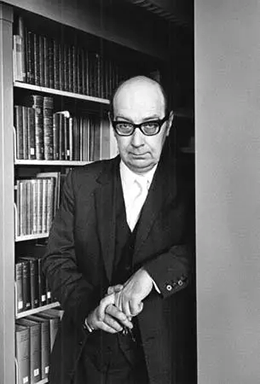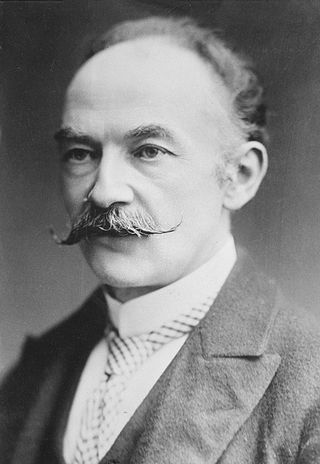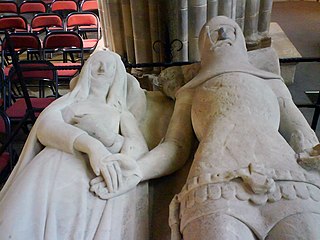Related Research Articles

Wystan Hugh Auden was a British-American poet. Auden's poetry is noted for its stylistic and technical achievement, its engagement with politics, morals, love, and religion, and its variety in tone, form, and content. Some of his best known poems are about love, such as "Funeral Blues"; on political and social themes, such as "September 1, 1939" and "The Shield of Achilles"; on cultural and psychological themes, such as The Age of Anxiety; and on religious themes, such as "For the Time Being" and "Horae Canonicae".

Philip Arthur Larkin was an English poet, novelist, and librarian. His first book of poetry, The North Ship, was published in 1945, followed by two novels, Jill (1946) and A Girl in Winter (1947). He came to prominence in 1955 with the publication of his second collection of poems, The Less Deceived, followed by The Whitsun Weddings (1964) and High Windows (1974). He contributed to The Daily Telegraph as its jazz critic from 1961 to 1971, with his articles gathered in All What Jazz: A Record Diary 1961–71 (1985), and edited The Oxford Book of Twentieth Century English Verse (1973). His many honours include the Queen's Gold Medal for Poetry. He was offered, but declined, the position of Poet Laureate in 1984, following the death of Sir John Betjeman.

Thomas Hardy was an English novelist and poet. A Victorian realist in the tradition of George Eliot, he was influenced both in his novels and in his poetry by Romanticism, including the poetry of William Wordsworth. He was highly critical of much in Victorian society, especially on the declining status of rural people in Britain such as those from his native South West England.

Simon Robert Armitage is an English poet, playwright, musician and novelist. He was appointed Poet Laureate on 10 May 2019. He is professor of poetry at the University of Leeds.

The Times Literary Supplement (TLS) is a weekly literary review published in London by News UK, a subsidiary of News Corp.

Sir Andrew Motion is an English poet, novelist, and biographer, who was Poet Laureate from 1999 to 2009. During the period of his laureateship, Motion founded the Poetry Archive, an online resource of poems and audio recordings of poets reading their own work. In 2012, he became President of the Campaign to Protect Rural England, taking over from Bill Bryson.

Howard Nemerov was an American poet. He was twice Poet Laureate Consultant in Poetry to the Library of Congress, from 1963 to 1964 and again from 1988 to 1990. For The Collected Poems of Howard Nemerov (1977), he won the National Book Award for Poetry, Pulitzer Prize for Poetry, and Bollingen Prize.
John Barrington Wain CBE was an English poet, novelist, and critic, associated with the literary group known as "The Movement". He worked for most of his life as a freelance journalist and author, writing and reviewing for newspapers and the radio.

An aubade is a morning love song, or a song or poem about lovers separating at dawn. It has also been defined as "a song or instrumental composition concerning, accompanying, or evoking daybreak".
"This Be The Verse" is a lyric poem in three stanzas with an alternating rhyme scheme, by the English poet Philip Larkin (1922–1985). It was written around April 1971, was first published in the August 1971 issue of New Humanist, and appeared in the 1974 collection High Windows.

Brunette Coleman was a pseudonym used by the poet and writer Philip Larkin. In 1943, towards the end of his time as an undergraduate at St John's College, Oxford, he wrote several works of fiction, verse and critical commentary under that name, including homoerotic stories that parody the style of popular writers of contemporary girls' school fiction.
Anthony Simon Thwaite OBE was an English poet and critic, widely known as the editor of his friend Philip Larkin's collected poems and letters.

High Windows is a collection of poems by English poet Philip Larkin, and was published in 1974 by Faber and Faber Limited. The paperback version was first published in Britain in 1979. The collection is the last publication of new poetry by Larkin before his death in 1985, and it contains some of his most famous poems, including the title piece, "High Windows", "Dublinesque", and "This Be The Verse". The collection contains themes presented in his earlier collections, though the tone of the poems caused critics to suggest the book is darker and more "socially engaged" than his earlier volumes. It is currently on the AQA AS/A2 level English Literature syllabus.

The Less Deceived, first published in 1955, was Philip Larkin's first mature collection of poetry, having been preceded by the derivative North Ship (1945) from The Fortune Press and a privately printed collection, a small pamphlet titled XX Poems, which Larkin mailed to literary critics and authors. Larkin was unaware that postal rates had gone up, and most recipients, when asked to pay the difference for delivery of a pamphlet by a little-known writer, turned them away; only around 100 copies were printed.

"An Arundel Tomb" is a poem by Philip Larkin, written and published in 1956, and subsequently included in his 1964 collection The Whitsun Weddings. It describes the poet's response to seeing a pair of recumbent medieval tomb effigies with their hands joined in Chichester Cathedral. It is described by James Booth as "one of [Larkin's] greatest poems". It comprises 7 verses of 6 lines each, each with rhyme scheme ABBCAC.

Collected Poems is the title of a posthumous collection of Philip Larkin's poetry edited by Anthony Thwaite and published by Faber and Faber. He released two notably different editions in 1988 and 2003, the first of which also includes previously unpublished work. Both editions include the contents of Larkin's collections The North Ship, The Less Deceived, The Whitsun Weddings and High Windows, plus other material.

Motiram Bhatta was a Nepalese poet, singer, essayist, publisher, literary critic and biographer. He is considered the first biographer and literary critic of Nepali literature and is credited for starting the first private printing press in Nepal in c. 1888. He also introduced the Ghazal style of poetry and singing in Nepal. Bhatta was a polyglot and alongside Nepali, he had studied in Sanskrit, Persian, English and was also proficient in Bengali, Urdu and Nepal Bhasa.
Throughout the life of the poet Philip Larkin, multiple women had important roles which were significant influences on his poetry. Since Larkin's death in 1985, biographers have highlighted the importance of female relationships on Larkin: when Andrew Motion's biography was serialised in The Independent in 1993, the second installment of extracts was dedicated to the topic. In 1999, Ben Brown's play Larkin with Women dramatised Larkin's relationships with three of his lovers, and more recently writers such as Martin Amis, continued to comment on this subject.
Larkin 25 was an arts festival and cultural event in Kingston upon Hull, England, organised to mark the 25th anniversary of the death of the poet and University of Hull librarian, Philip Larkin. The festival was launched at Hull Truck Theatre on 14 June 2010 and concluded on 2 December 2010, the twenty-fifth anniversary of the poet's death, with the unveiling of a statue in his likeness at Hull Paragon Interchange.
Needler Hall was a hall of residence of the University of Hull, located on Northgate in Cottingham, East Riding of Yorkshire, England. Originally a large private house built in the 18th century, it was acquired, along with Thwaite Hall, by the newly established university college in 1928. It was named in honour of Frederick Needler, of Needler's, who was a major benefactor of the university college.
References
- ↑ "'Aubade' by Philip Larkin - Poem of the Week". TLS. Retrieved 2022-01-04.
- ↑ "A Short Analysis of Philip Larkin's 'Aubade'". Interesting Literature. 2017-03-07. Retrieved 2022-01-04.
- ↑ Wilson, Frank (28 December 2014). "A biography corrected, but still sad". www.inquirer.com. Retrieved 2022-01-04.
- ↑ Rossen, Janice (1989). Philip Larkin: His Life's Work. University of Iowa Press. p. 141. ISBN 978-0-87745-271-3.
- ↑ "Devs - Poetry Scene - (Aubade by Philip Larkin)". YouTube . Retrieved March 8, 2022.